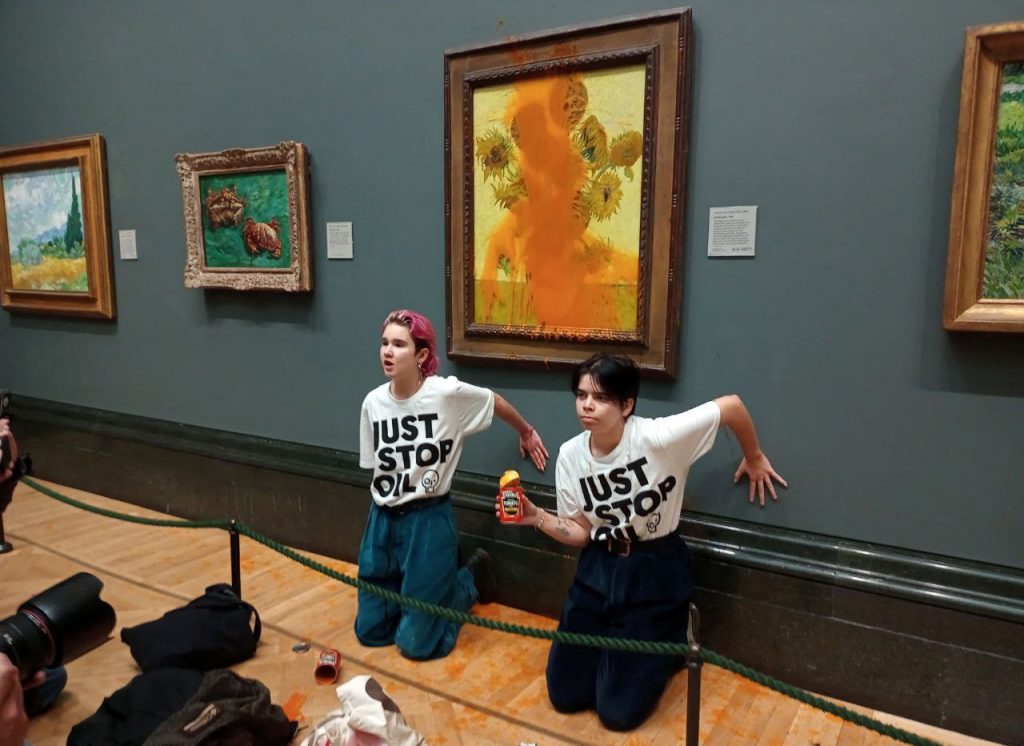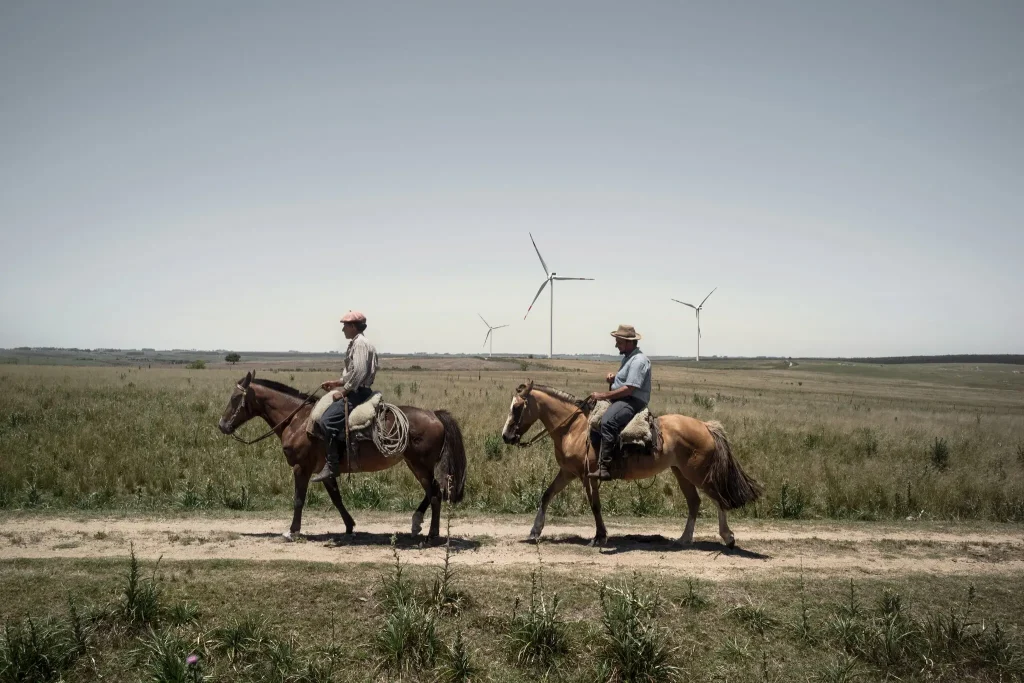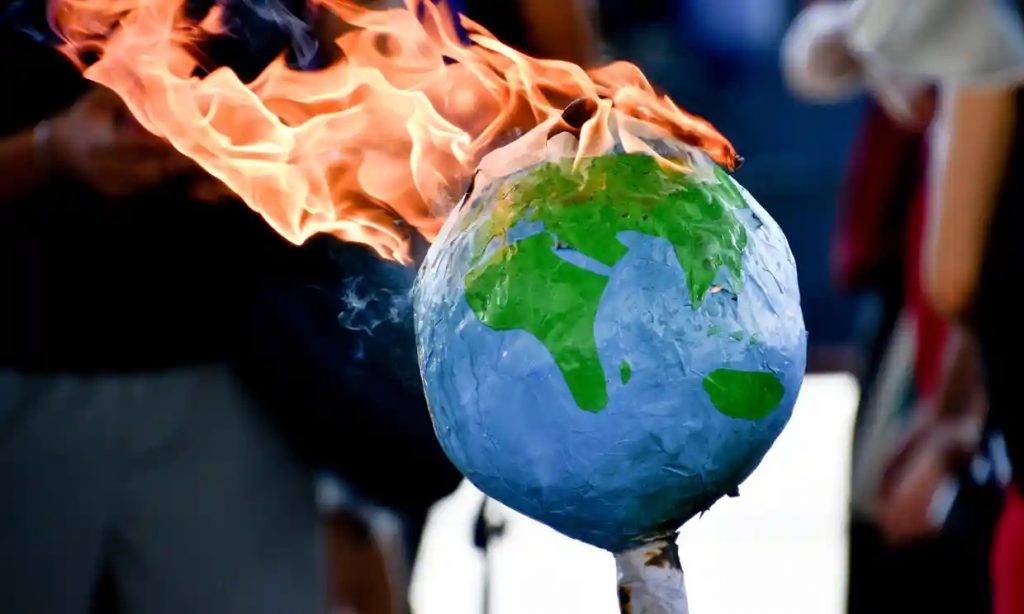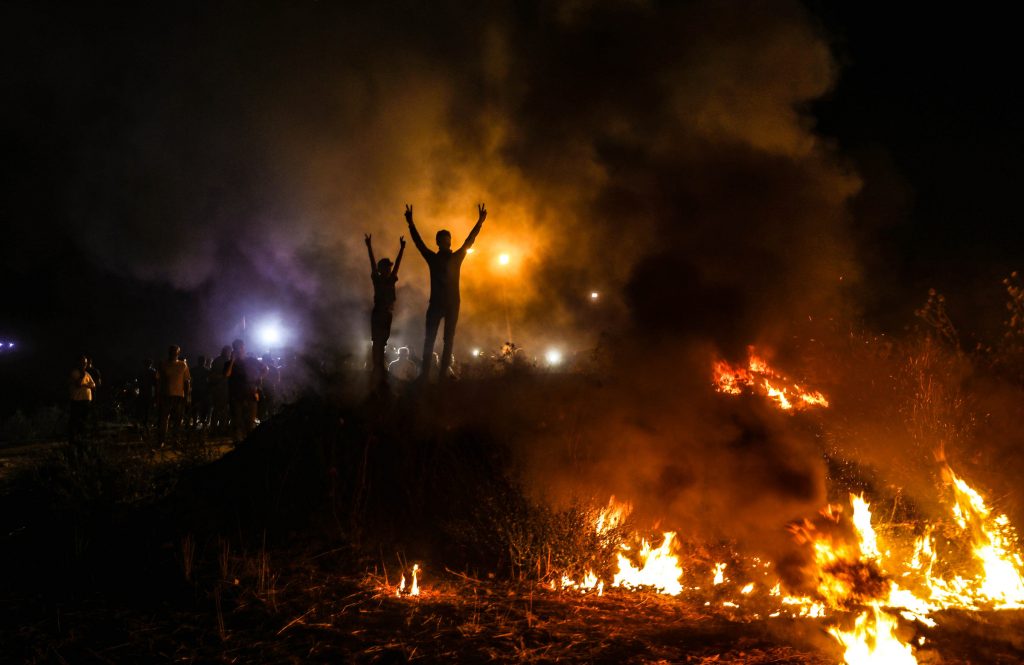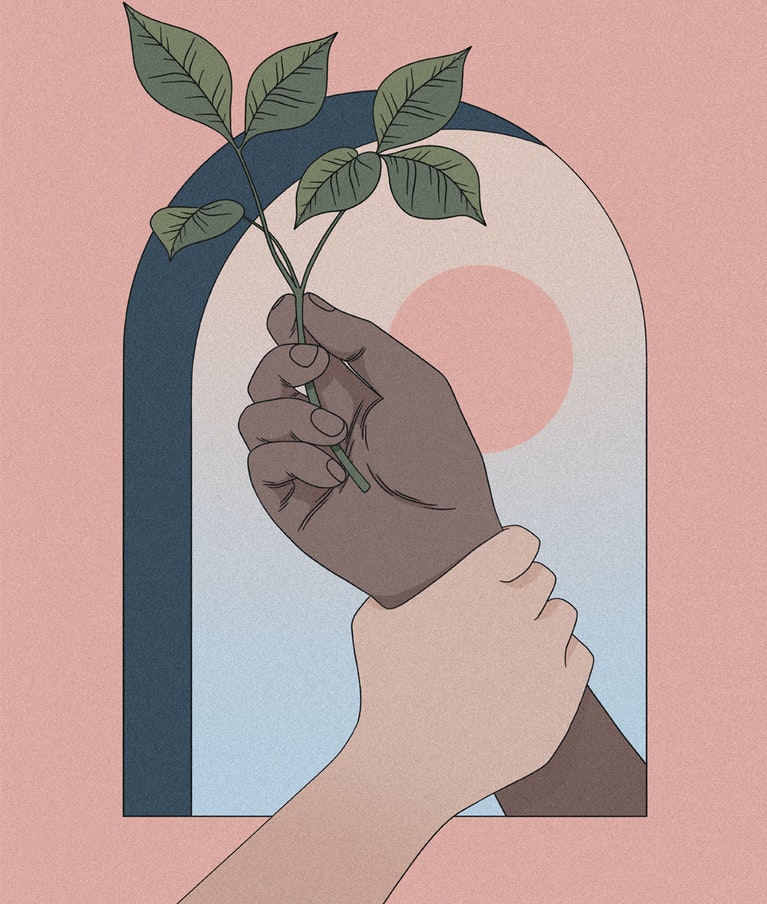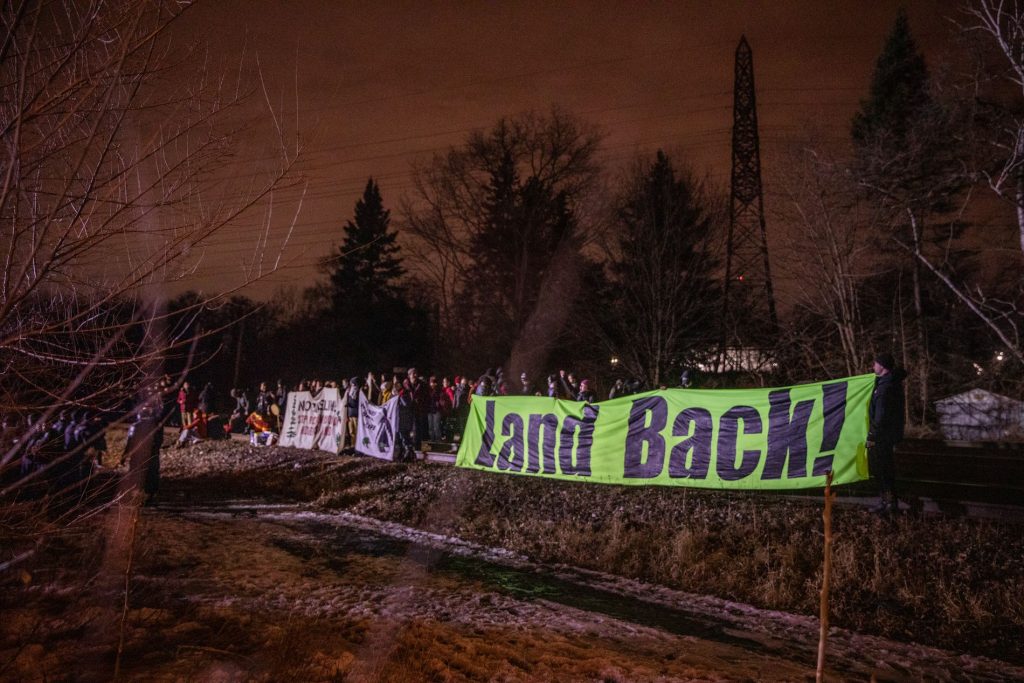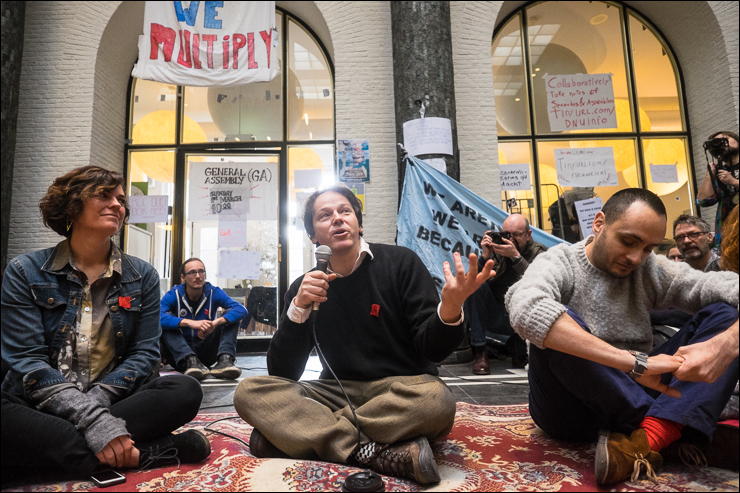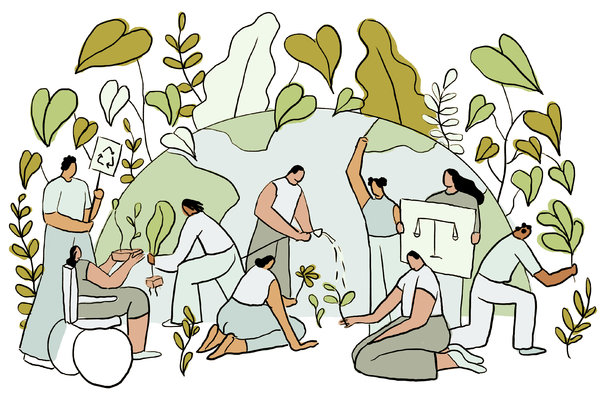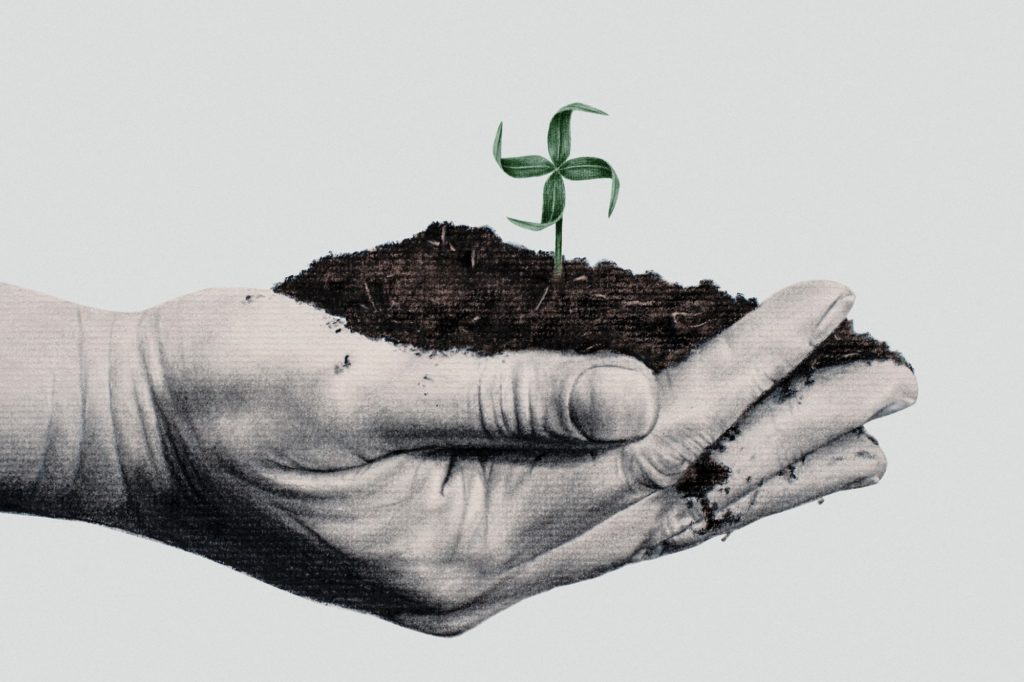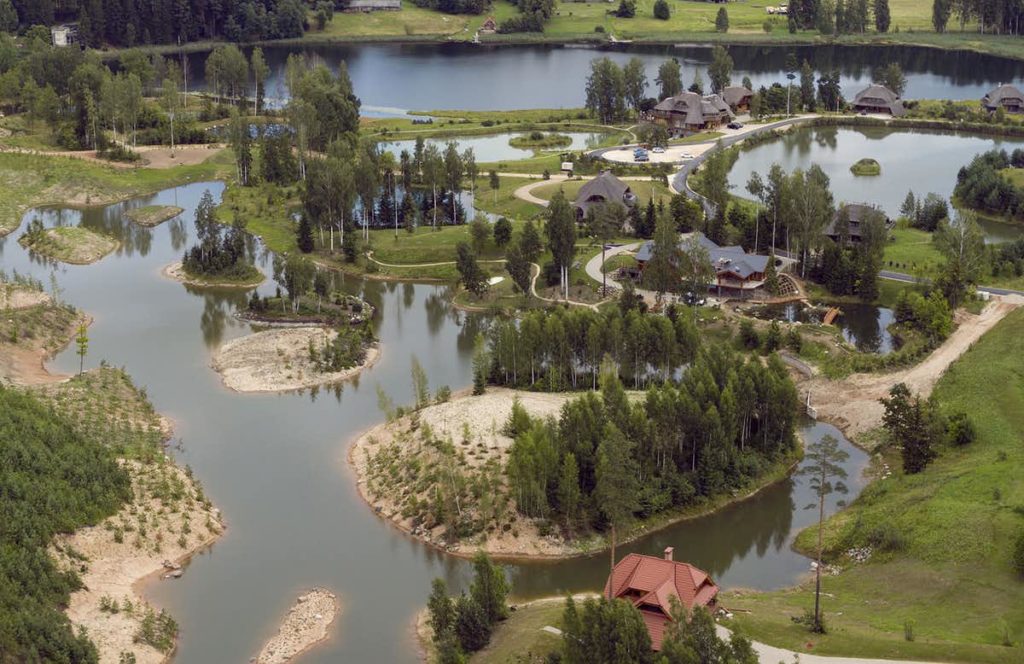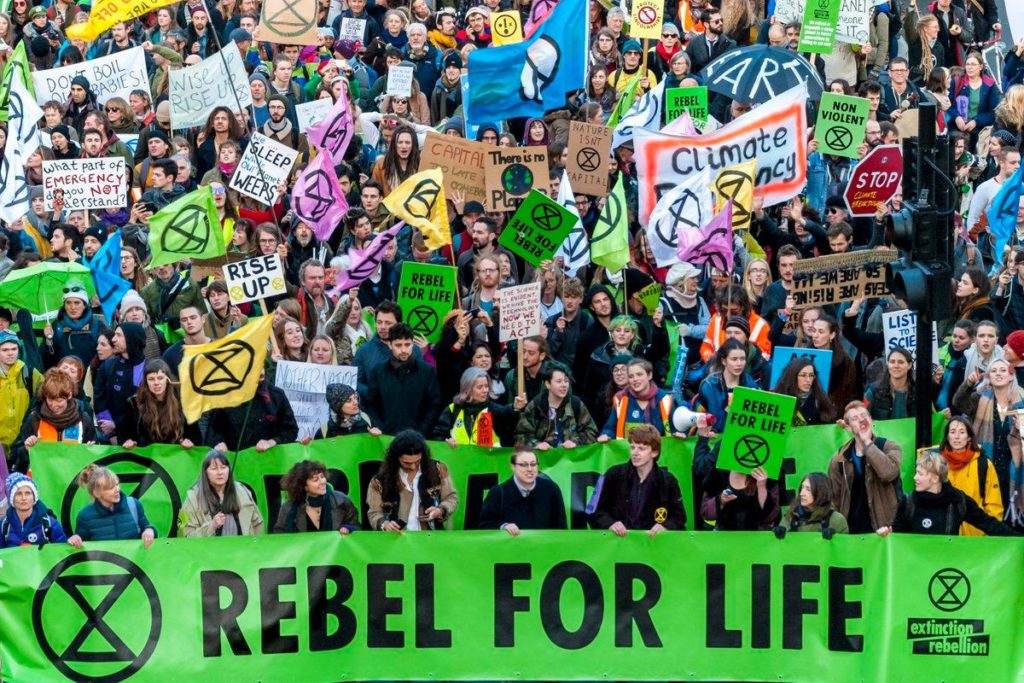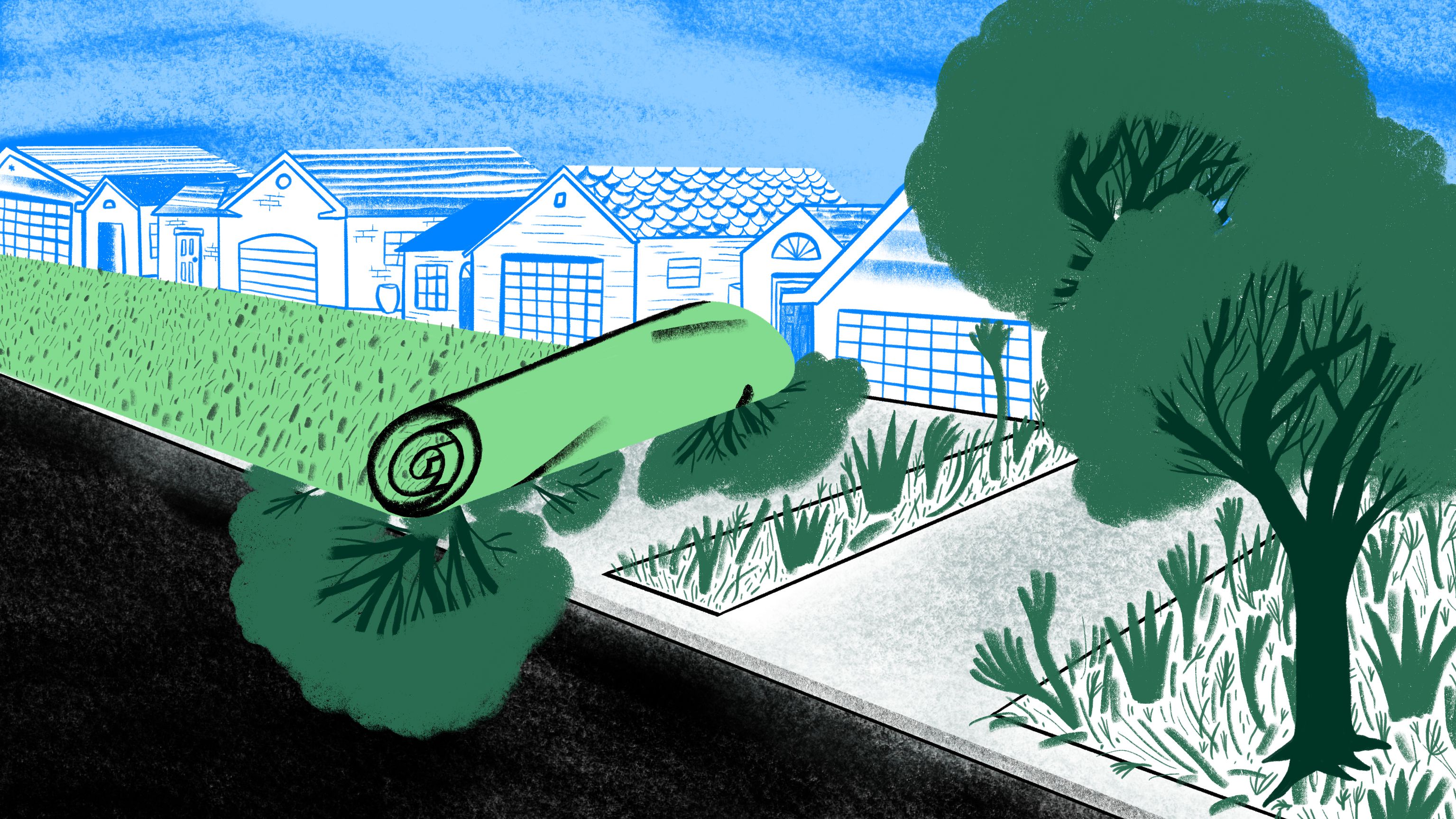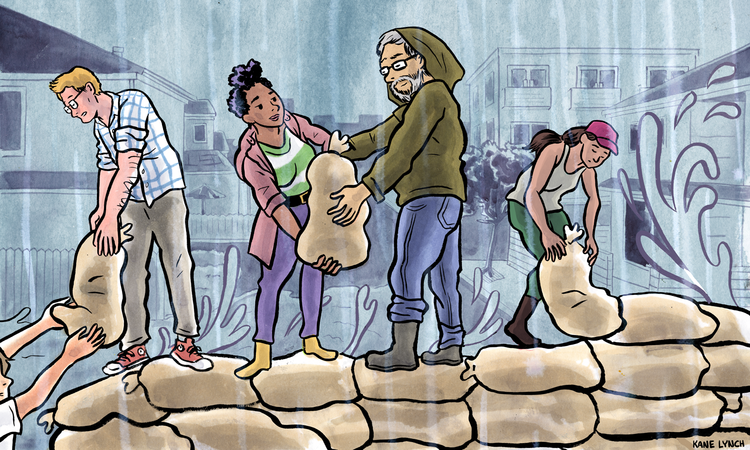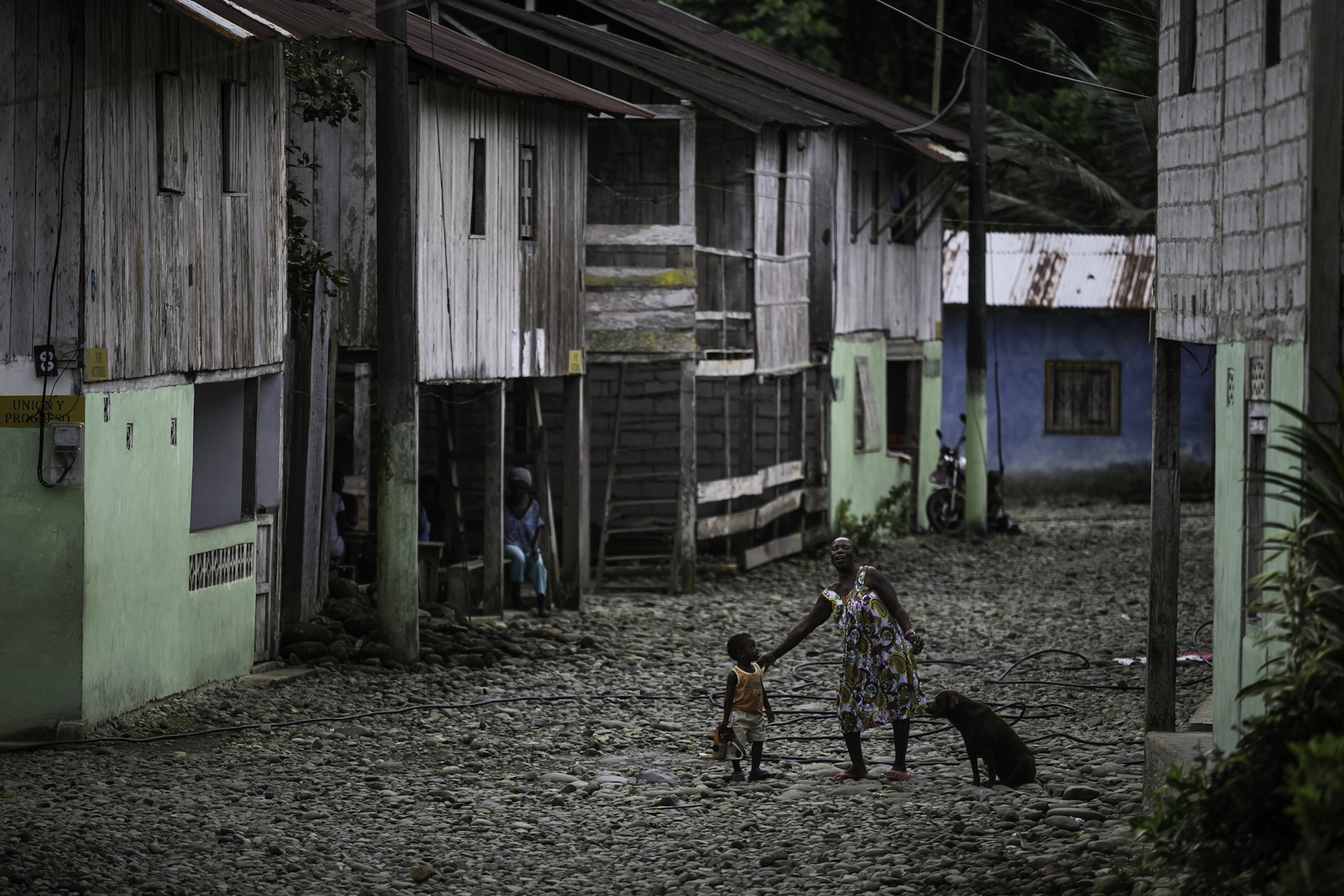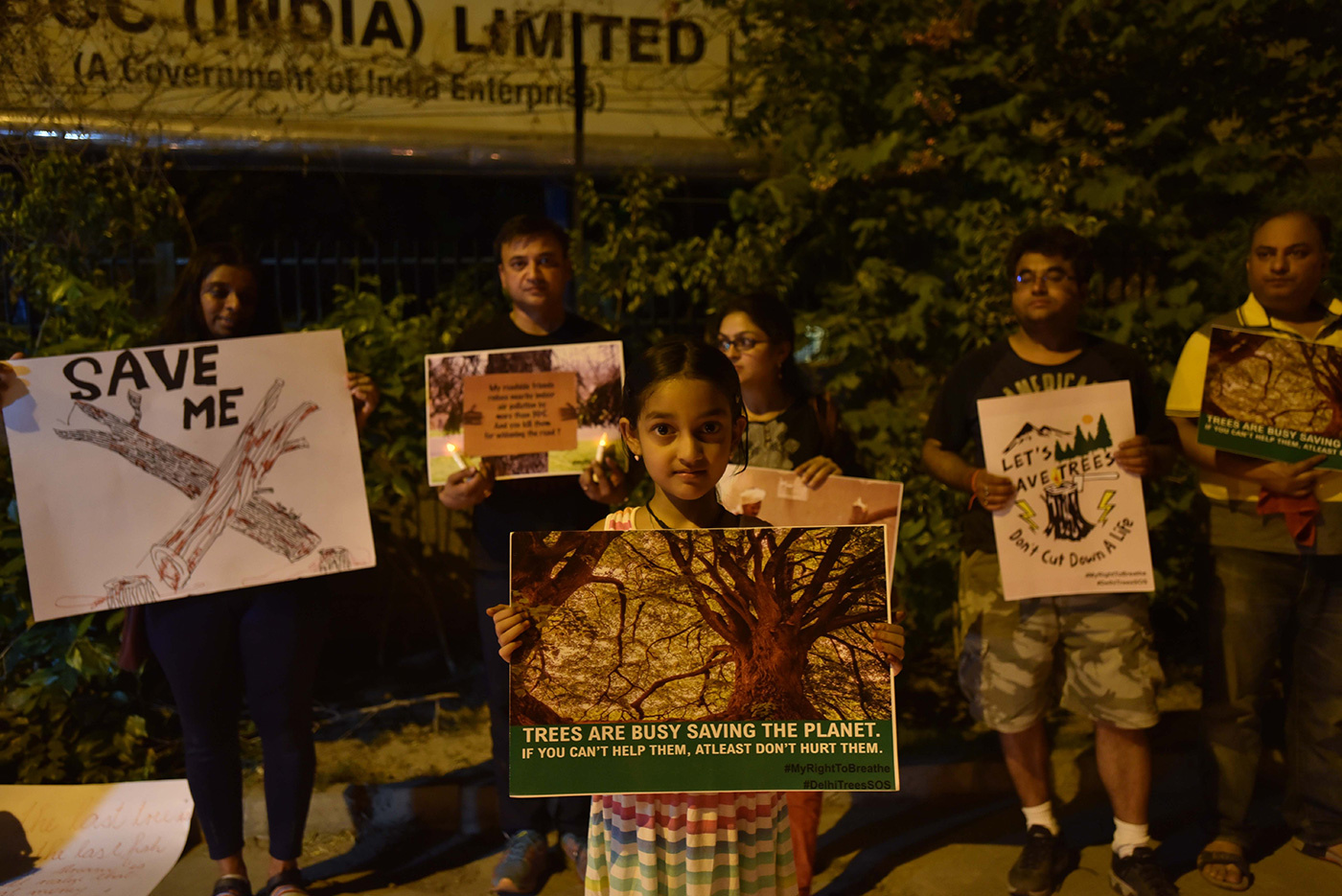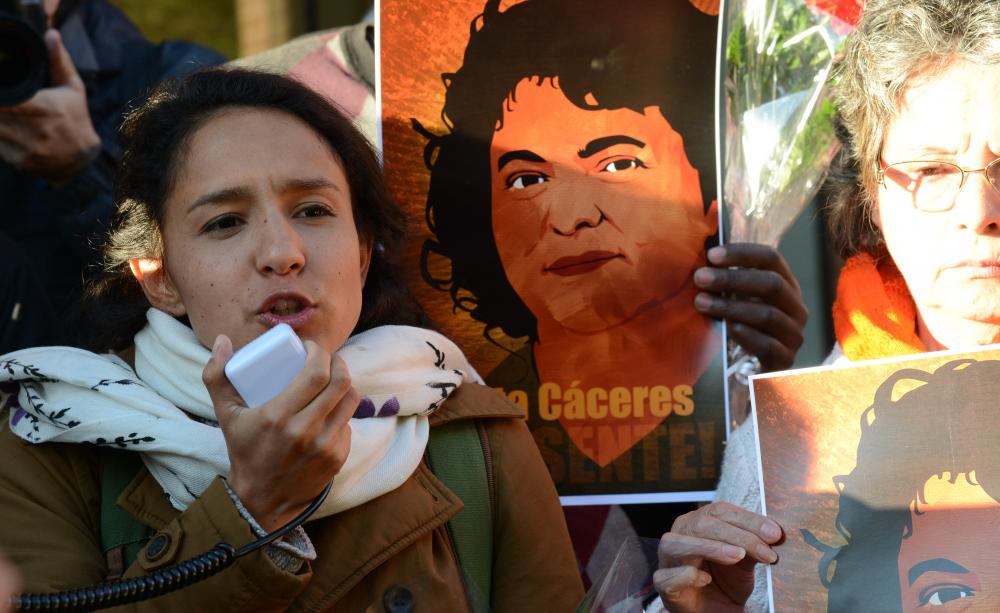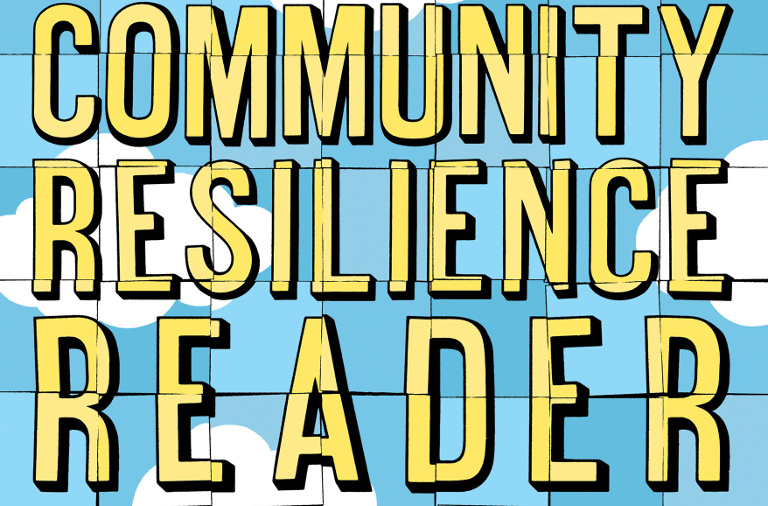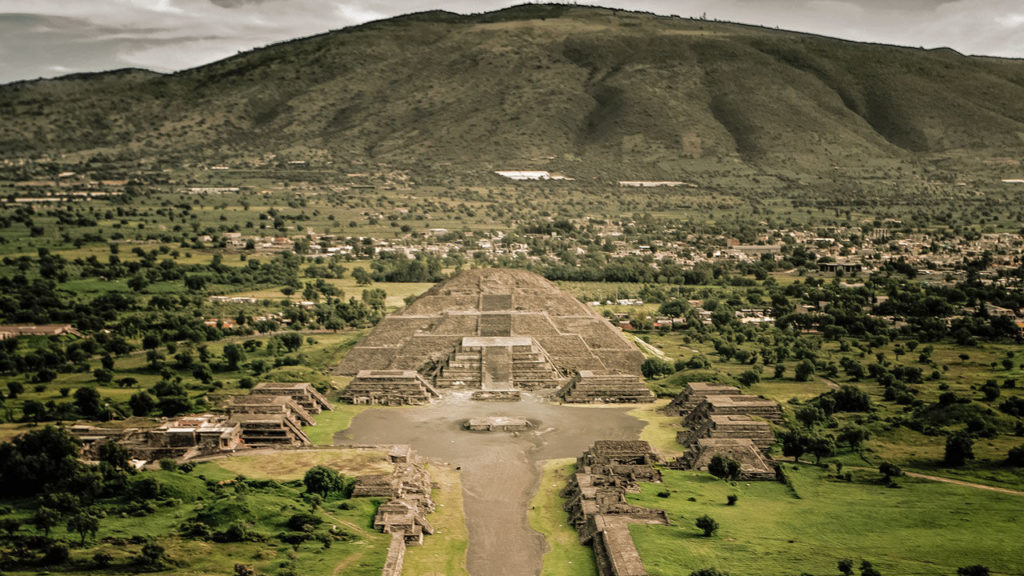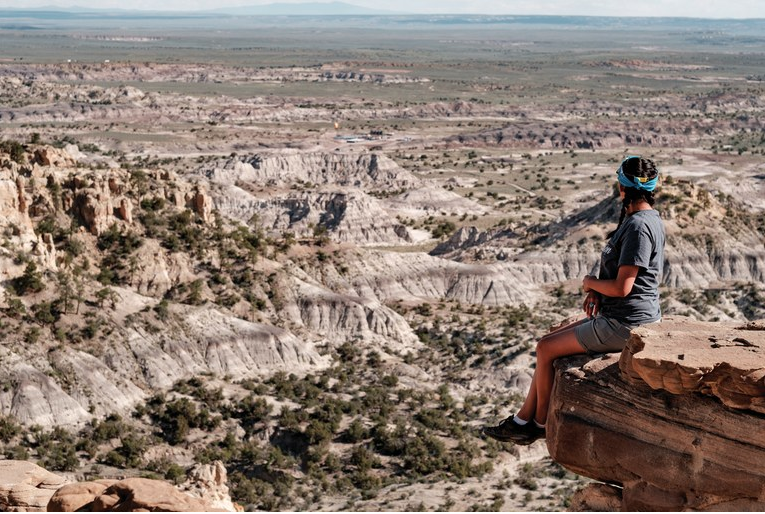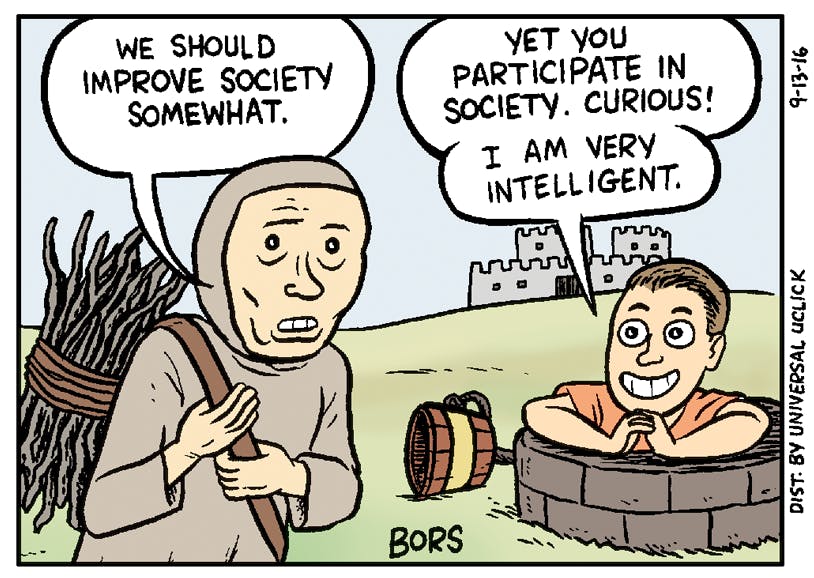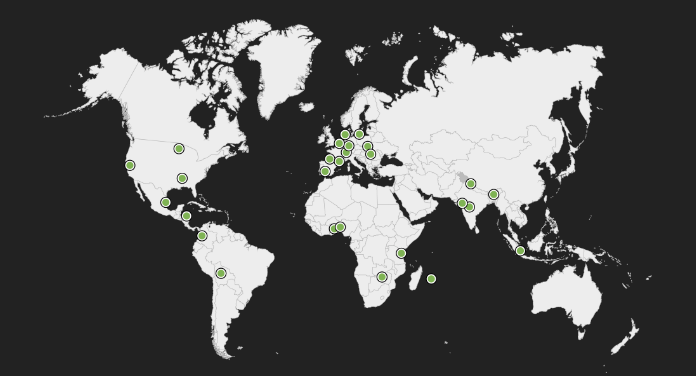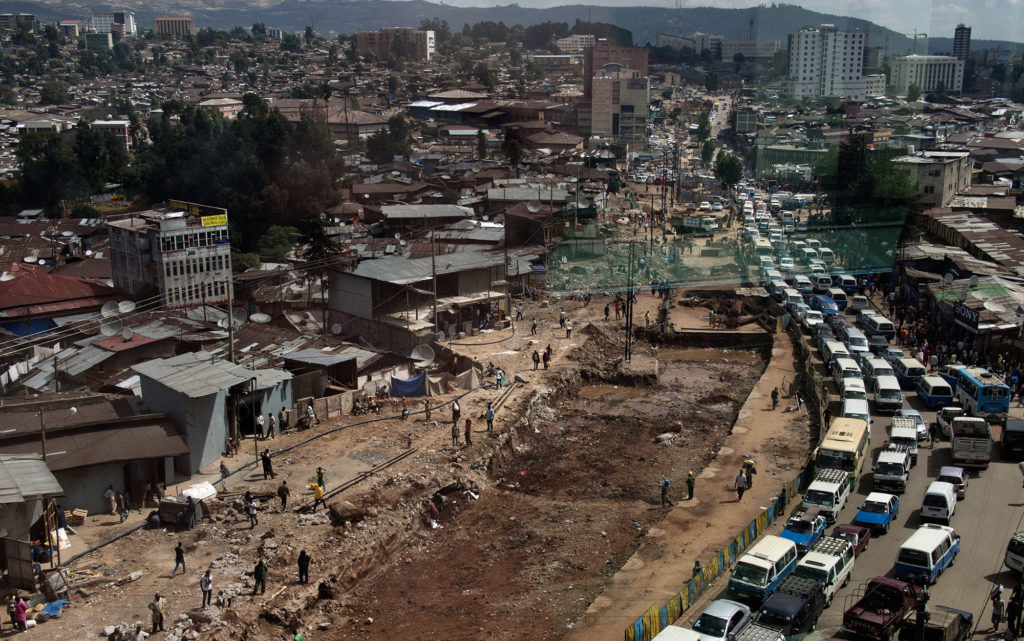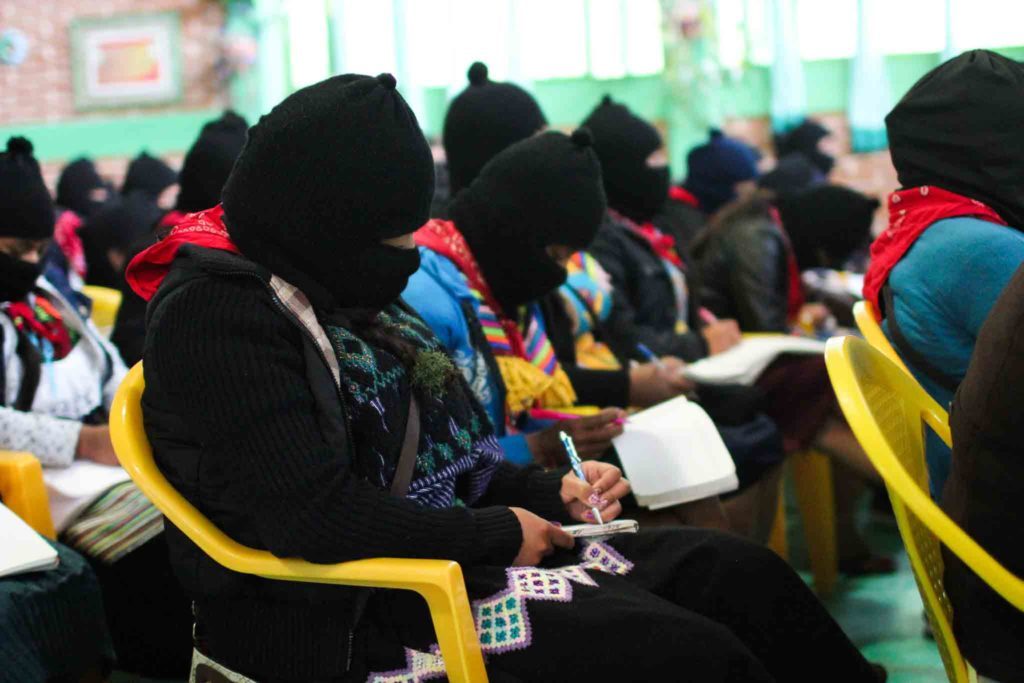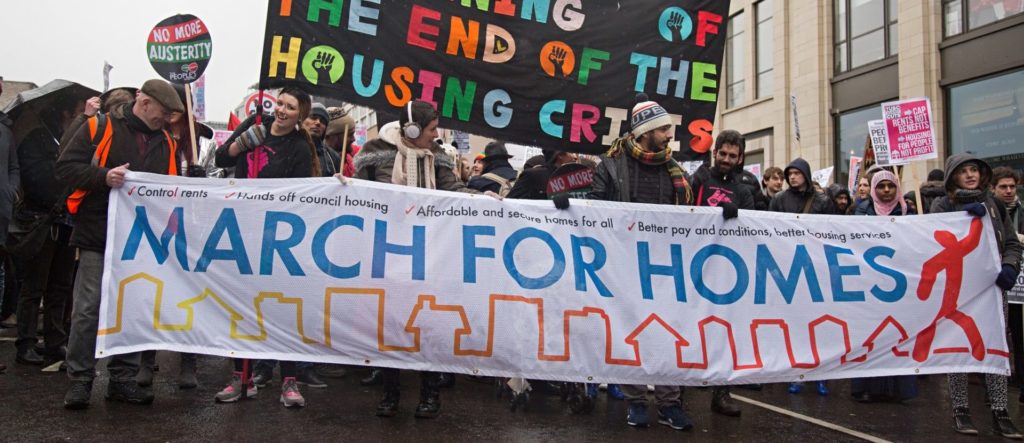Once a month, we put together a list of stories we’ve been reading: things you might’ve missed or crucial conversations going on around the web. We focus on environmental and social justice, cities, science fiction, current events, and political theory.
We’ll try to include articles that have been published recently but will last, that are relatively light and inspiring, and are from corners of the web that don’t always get the light of day. This will also be a space to keep you up to date with news about what’s happening at Uneven Earth.
It’s always surprising when we put together this list, because it makes us realize how much good stuff is out there, so much that we can’t possibly fit it all. Amongst many other things, this month, we collected stories about how to deal with ecological grief and the meaning of hope today, the many Indigenous struggles happening around the world, and the power of youth. We also found a lot of articles about cities, ecomodernism, and ecological thought. And, holy shit, did you know Ursula K. Le Guin made a weird electronica album?

Uneven Earth updates
How to build a new world in the shell of the old | Link | Every city has its graveyard of community groups. Without a strategic vision, local projects cannot possibly amount to a systemic alternative to capitalism.
Mother Frankenstein | Link | Revisiting feminist science fiction history-telling
In Annihilation, the revolution will not be human | Link | If scientists need training in the uncanny, what better way than a crash course in science fiction?
Hierarchy, climate change and the state of nature | Link | We can start building new tools for a democratic and ecological society once we understand hierarchy as the central problem
The Craven mode of production: Introduction | Link | “Theirs was an undeveloped society, I thought, and their success over the past centuries has been largely accidental.”
Fish out of water | Link | “For those who refuse to be humble, the earth has a way of insisting upon humility.”

You might’ve missed…
World’s richest 10% produce half of global carbon emissions
BP claims an oil spill off Australia’s coast would be a ‘welcome boost’ to local economies
Canadian government insiders say Trans Mountain pipeline approval was rigged: an investigative piece.
More than 95% of Earth’s population breathing dangerously polluted air, finds study
In January, it was announced that the airport in Notre-Dame-Des-Landes would not go through. However, those occupying against the airport would be evicted. Known as the Zone-à-Defendre, or ZAD, this area has turned into a space for building alternatives to the current system. In April, the ZAD started being attacked by riot police, with up to 10,000 people showing up to defend it. Here is a long-form report from a long-time resident about the eviction and what it means. A non-exhaustive report and photo essay documenting the first three days of the eviction operation at the ZAD. An essay connecting the ZAD to global resistance against megaprojects and the carbon economy. An essay by Kristin Ross, chronicler of the Paris Commune, on the significance of the ZAD today. Follow constant updates on the eviction process via the Flash infos on zad.nadir.
What the heck’s happening in Brazil? Glenn Greenwald lays it out. What the soft coup means for Brazil’s democracy. An explainer in Dissent about the nature of Brazil’s new right.
Madagascar’s vanilla wars: prized spice drives death and deforestation
Climate change a threat to forgotten people of Uganda
The Puerto Rican town left to stew in toxic waste
Tree sitters in West Virginia aren’t leaving; they’re expanding
There’s increasing concern about plastics: in our food, in our oceans. ‘Plastic is literally everywhere’: the epidemic attacking Australia’s oceans. The road to hell is paved with good intentions. The Ocean Cleanup array, designed to clean plastics from the ocean like a baleen whale, is one of these good intentions: experts in marine plastics say it’s a bad idea. The Great Pacific Garbage Patch is mostly made of fishing gear.
Apart from Cape Town, we’re facing an increasing threat of water crises globally. Will the Southwest U.S. Run Short of Water in 2019? ‘Day zero’ water crises: Spain, Morocco, India and Iraq at risk as reservoirs shrink. Engineers tried to tame the Mississippi River. They only made flooding worse.

Indigenous uprising
Colombia has recognised the autonomy of Indigenous communities across the Amazon through a new decree—described as the most important step for Amazon Indigenous rights in 30 years.
Counter-mapping. Indigenous communities are building drones to make their own maps—and using them to fight erasure and exploitation at the hands of the state and capital: Cartographers Without Borders. Zuni elders, religious leaders, and tribal members are creating maps that bring an Indigenous voice and perspective back to the land, countering Western notions of place and geography and challenging the arbitrary borders imposed on the Zuni world.
Imperialism, capitalism, and the revolutionary potential of urban Indigenous land relationships
Driven from home, Philippine Indigenous people long for their land
This is the frightening way fossil fuels & violence against native women are connected
Indigenous people are being displaced again – by gentrification. Soaring rents are destroying the communities Aboriginal people have painstakingly built in Brisbane, Melbourne and Sydney. Also happening in Australia: Fear and harassment in Kalgoorlie: Indigenous youth report alarming alienation.
Indigenous Brazilians rally to demand land rights protection. Over 3,000 people arrive in Brasilia to denounce what activists say is an unprecedented rollback of Indigenous rights.
The squandered funds raised around Standing Rock. What we learned about accountability from a nine-month investigation into #NoDAPL.
Zapatista women inspire the fight against patriarchy
How Indigenous women who survived Guatemala’s conflict are fighting for justice
Native Americans fighting fossil fuels
‘Our territory is our life’: one struggle against mining in Ecuador
The Mexican Indigenous community that ran politicians out of town. For a more in-depth analysis: People in defence of life and territory.
How Indigenous knowledge is transforming the March for Science; why Indigenous knowledge is critical to understanding climate change; what ecologists are learning from Indigenous people; and what Indigenous economics can teach us in thinking about environmental issues. “By integrating traditional knowledge with Western science, together we can solve some of our biggest challenges, including those brought by our changing climate.” It’s time to end another imperial era, and unravel the legacies of colonial science.
The solution to reducing the staggering rates of suicide among Indigenous communities worldwide lies in strengthening culture rather than just focusing on issues such as drug and alcohol abuse, experts at a global conference have said.

New politics
Young people are about to utterly transform climate politics. If we care about intergenerational justice, moving at the most disruptive speed we can on cutting emissions is a clear ethical imperative. In Florida, children are suing Governor Rick Scott to force the state to take action on climate change. A group of 25 children and youth successfully sued the Colombian government for failing to protect their rights to life and a healthy environment. More examples of young people taking up climate activism around the world: “We are not a force to be ignored”.
Universal basic services could work better than basic income to combat ‘rise of the robots’, say experts
Puerto Rican EcoFarms after María
Redefining abundance: how a Greek eco-village inspired me. “Revolution can begin anywhere, large or small. A hotel room, a village, a farm.”
Adventures in democracy. A global social movement is rising. It is open, participatory and public.
How art is elevating voices from the front lines of climate change. A project by the nonprofit CultureStrike is highlighting environmental problems in poor and minority communities. “We need all people affected at the table.”
How a wave of municipalisations in Europe is challenging privatisation
In some Brazilian prisons, there are no guards, and prisoners govern by self-rule.
Do we have the right to financial rebellion? A conversation with Enric Duran, founding member of the Catalan Integral Cooperative and known as the Robin Hood of the Banks: “Integral revolution means comprehensive transformation from below of all aspects of life like culture, economic, social, personal, ecological… We achieve this by empowering communities from below to build a new society, new systems that are not based on the state or capitalism.”
Sometimes fighting climate change means breaking the law
In this two-part interview, Naomi Klein speaks with the PAReS collective about disaster capitalism in Puerto Rico and the constitution of opposition movements and political alternatives, as well as the struggles for multiple sovereignties, the importance of weaving historical struggles with current movements, and the role of diasporas in supporting these movements: here is the first part, and the second part.
Utopia is all around us. Jonny Gordon-Farleigh of STIR magazine talks to Ruth Potts about the power of utopian thinking in an age of crisis.
On climate change, state power and the worlds to come. Geoff Mann and Joel Wainwright explore the possible political and economic futures of a planet under rapid climate change. “Climate change tests the nation state in ways that it has not been tested, perhaps ever. It demands a response that can’t be contained at any scale other than the planetary.”
Dr. Martin Luther King Jr. was assassinated on the 4th of April 1968. In his remembrance, here are two reminders that his politics were a lot more radical than they are often made out to be: Martin Luther King’s critique of capitalism is more relevant than ever, and Martin Luther King Jr was a radical. We must not sterilize his legacy.
In memory of Marielle Franco. “She rattled the system, so she was silenced.” A tribute to the activist who advocated for the rights of the most oppressed Brazilians. “MARIELLE FRANCO PRESENTE!” Part 1 in a new series about Radical Municipalism, looking at ways that people worldwide are organizing in their cities to build power from the bottom up. On the imperative of transnational solidarity: A U.S. black feminist statement on the assassination of Marielle Franco.
Cooperation against catastrophe. “Hope and despair are both roads we can choose to walk. Hope is difficult, but it contains potential. Despair in the face of catastrophe is foolishness beyond compare. Let us take stock of the facts, collect our courage and stay focused on realistic solutions.”
Wendell Berry’s 17 rules for a sustainable local community

Where we’re at: analysis
The ideology of fossil fuels: Imagining a low-carbon world means reevaluating our conception of freedom itself
‘Now is the time of monsters’: Reflections on the future of the revolution in Rojava after the fall of Afrin.
The climate is changing: False solutions to global climate change. It is crucial to stress that our economic system is fundamentally incompatible with life on this planet, and that reformist legislation will not save us. Nothing but radically rethinking the ideology of capitalism will do.
Denial by a different name: It’s time to admit that half-measures can’t stop climate change
The teachers’ strike and the food system
Justin Trudeau is bailing out a Texas oil billionaire. He should be bailing out Canada’s workers and the climate.
Nitrogen wars. The search for cheap nitrogen in the 19th century wasn’t just some for the sake of cutting costs, rather, it was the product of aggressively expansionist imperial-industrial ambitions.
“Electoral pursuits have veered us away.” Kali Akuno on movement lessons from Jackson, Mississippi.
“There Was Once A Generation of Lions” An interview with Mike Davis, author of Planet of Slums and City of Quartz.
I need to know the place where I stand and why I stand there. An interview with Arundhati Roy: “[Europe and America] are the biggest merchants of death. We are doing the buying and they are doing the selling of all the weapons. And that is the fundamental strength of the economy now — certainly of the European economy. So, there can’t be peace on earth when just to keep these economies going, you need to be at war.”
Chasing ambulances. While their desire to support popular movements is well-meaning, activist leftists are basically ambulance chasers. When they see the media cover something politically exciting, their instinct is to show up offering “leadership” and “the socialist perspective.” Generally, no one takes them particularly seriously when they do. Why should they?
A history of denial. Too many publications about the history of Europe’s relationship with Africa fail to sufficiently convey the damage that was done to the African economy, peoples, and political development by the slave trade and European colonialism. A review of Empires in the Sun: The Struggle for the Mastery of Africa by Lawrence James.
Dissecting the madness of economic reason. David Harvey’s latest book provides a riveting reading of Marx’s Capital and a trenchant critique of a political and economic system spiralling out of control.
‘Authoritarian corpopulism’ supports the rise of sugarcane and oil palm agribusinesses in Guatemala. It relies on persuasion and selective violence, cloaked in the rule of law and backed by the state, to advance big business agriculture and resource extraction.
The new debt colonies
An aid industry labouring under neocolonial structures is no help
Teilhard vs. Ellul: two 20th-century theologians with very different views on technology, media, and progress

Just think about it…
How the sufferings of one generation are passed on to the next. “More than a century after the Wounded Knee massacre, Sitting Bull’s descendants are still feeling the pain. As one of them told Brave Heart and colleagues: I think losing the land was the most traumatic … There’s a big hole in my heart”
‘Too busy, too much pressure’: an ageing China and the erosion of filial piety
Everything you’ve been told about government debt is wrong
Why we should bulldoze the business school
The existence of an ancient Phoenician nation has justified the need for a nation state. But its existence is a fantasy.
How can famines be ended? The road to eliminating mass starvation is to prosecute the people who perpetrate it.
Enlightenment rationality is not enough: we need a new Romanticism
Where have all the rioters gone? Good jobs in black communities have disappeared, evictions are the norm, and extreme poverty is rising. Cities should be exploding—but they aren’t.
Productivity is dangerous
How natural birth became inaccessible to the poor. While Mexico’s middle and upper classes are discovering the wonders of natural birth, traditional indigenous midwives are actively being discouraged from providing the same services to the lower classes.
‘Lost’ Amazonian tribes: why the West can’t get over its obsession with El Dorado
The demise of the nation state. On the possibilities for a world beyond the nation state, and the urgent need to rethink the fundamental institutions and organization of geopolitics.
A revolution in our sense of self. “Considered in isolation, our “selves” turn out to be partial, fragmentary and alarmingly fragile. Yet, collectively, we can construct lives, organisations and societies, which can be remarkably stable and coherent.”
Without slavery, would the U.S. be the leading economic power? An audio interview of Edward Baptist, author of The Half Has Never Been Told: Slavery and the Making of American Capitalism.
We don’t need to be removed from nature. We need to radically change the way we relate to it.
Friendship is a root of freedom. An excerpt from Joyful Militancy by Nick Montgomery and carla bergman. “Friendship and resistance are interconnected: when we are supported, we are more willing to confront that which threatens to destroy our worlds.”

Urban justice
Greening and economic development have become deeply intertwined in the world’s cities, according to a new analysis of 90 cities by the Barcelona Lab for Urban Environmental Justice and Sustainability (BCNUEJ).
The role of food policy in driving or stopping gentrification
Sexism and the city: how urban planning has failed women
What can public spaces offer to the globally displaced?
What would a more ethical city look like?
Why I started an Instagram account documenting my quickly gentrifying LA neighborhood
Automatic vehicles can’t save cities
Your sea wall won’t save you: Negotiating rhetorics and imaginaries of urban climate resilience.

Ecology and modernity
We decided to celebrate Earth day by putting into one place all the articles questioning and challenging today’s technofundamentalists and modernists.
The humanist left must challenge the rise of cyborg socialism
Techno-fundamentalism can’t save you, Mark Zuckerberg
You aren’t a vulcan, but a squishy ideological human. “Given the existence of large amount of noise, chaos, and “hidden” variables in socio-economic systems, there cannot be a pure rationalist and “scientific” way of tackling these problems.”
Where’s the ‘eco’ in ecomodernism? Aaron Vansintjan’s critique of the ecomodernist logic. A techno-green future of limitless abundance sounds great, but it’s totally unsustainable.
The magical thinking of ecomodernism. The ‘decoupling’ myth, debunked.
Can ‘green growth’ really avert global ecological collapse?
The poverty of luxury communism
From “green growth” to post-growth
Our obsession with economic growth ignores everything that makes life worthwhile
The futility of “Big Green” activism: A conversation with Tim DeChristopher
And here’s some ecological thought
Five Revolutions: How bacteria created the biosphere and caused the first climate crisis
You’re made of the same stuff sloshing around in tidepools. When the tides pull back the water line, a writer takes a trip through time.
Morality cuts: uncovering queer urban ecologies. “In these refuges for the disruptive, wild activities of queer sex, I have also watched falcons teaching their young how to hunt. There’s more than one kind of biodiversity at stake when these wilds are removed.”
Here’s to unsuicide: An interview with Richard Powers. “We cannot save the world; the world will go on well enough, long after it shrugs us off. But we might just be able to save ourselves, by coming home to the world’s influence and living in its seasons, not our own.”
Anna Tsing on the politics of the rhizosphere. “Perhaps noticing something as small and as little considered as the interactions of roots and fungi can make us remember that endless expansion has unintended consequences, and we had better start paying attention.”
Anthropologists are talking – about capitalism, ecology, and apocalypse. A collective interview featuring Bruno Latour, Isabelle Stengers, Anna Tsing and Nils Bubandt.
Dealing with hope, fear and grief in the Anthropocene
Landscapes of loss. Dark Mountain editor Tom Smith and author and geographer Alastair Bonnett discuss what grief, loss, yearning and nostalgia mean in an age of ecological crisis.
Hope and mourning in the Anthropocene: Understanding ecological grief
Love and loss in the Anthropocene (or is it the Capitalocene?)
Shaun Chamberlin on ‘Dark Optimism’ and the power of grief. “Whatever you do will change the world. If you take the most default option, you follow the most mainstream, down the line, ‘just keep your head down and get on with what they’re telling you to do’, approach, then that’s the world that you’re helping to create. There is no way that you cannot change the world.”

Sci-fi and the near future
This is the Muslim tradition of sci-fi and speculative fiction
We need to do a better job of imagining aliens
Exploring the Ecological Weird. Part I, Part II, Part III.
Making alternate worlds (feat. Ganzeer & Jeff VanderMeer)
Kim Stanley Robinson makes the socialist case for space exploration
An Eco-Marxist Blockbuster – on Blade Runner 2049
Warp-speed capitalism: The latest sci-fi imagines what society will look like if we colonise space – a universe in which might is right and there are no good guys.
New documentary Pre-Crime shows how Minority Report-esque police techniques are already a reality
‘Deeply weird and enjoyable’: Ursula K Le Guin’s electronica album
Surreal Photos of India’s living root bridges
Was there a civilization on Earth before humans?
The avant-garde meets ecology in Chile’s Open City

Resources
The NFB’s online collection of Indigenous cinema—check out CBC’s suggestions here.
15 Indigenous feminists to know, read and listen to
The Decolonial Atlas is a growing collection of maps which challenge our relationships with the land, people, and the state. It’s especially committed to Indigenous language revitalization through toponymy, the use of place names.
This app can tell you the Indigenous history of the land you live on
The Environmental Justice Atlas documents and catalogues social conflict around environmental issues across the world
Sharing cities: Activating the urban commons, a practical reference guide (available for free as a PDF) which showcases over a hundred sharing-related case studies and model policies from more than 80 cities in 35 countries.
Urban Planet: Knowledge towards sustainable cities. An open access book.
The Eviction Lab, a database of evictions in the US.
Winter Oak’s useful online information bulletin, The Acorn.
Ecosocialist bookshelf, April 2018. Six new books on climate change and disease; capitalist power and the planet’s future; brain, body, and environment; oceanic art and science; essential fungi and life; and the political economy of water.
100 must-read books about nature
A Google Drive folder collecting books and essays about anarchism, socialism, feminism, anti-colonialism, anti-imperialism, and more.
A Twitter thread dedicated to recommendations of Indigenous authors and reads.
Want to receive this in your inbox? Subscribe here.




